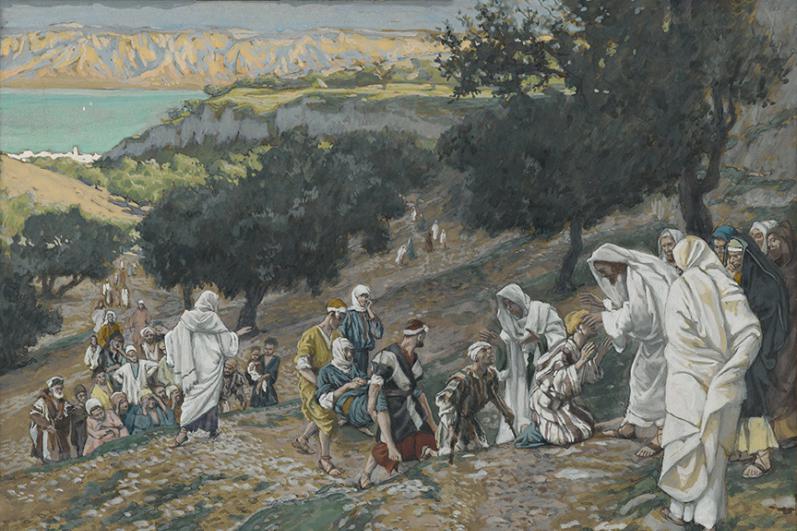Does insufficient faith keep us from being healed?
Q: When I was Evangelical, we were told Jesus wanted to heal us, every time; we need only ask "in his name." If we weren't healed, it was because we lacked sufficient faith to "claim it." I remember my Catholic Grandma saying though, that sometimes God heals and sometimes not, and that the best thing to do is "offer it up" to God, just asking for the strength to bear it. What does the Catholic Church actually say about all this, especially "healings?" (St. John's, KY)
A: While your question involves many layers, the short answer is no, Catholics don't believe that a lack of physical healing is due to some fault in the faith of the one suffering, nor can it be attributed to a lack of faith on the part of that person's loved ones.
For millennia, philosophers and theologians have reflected on the "problem of evil," or how a good and loving God could create a world with so much suffering in it. Looking through the eyes of faith, though, we know that physical illness, infirmity, and death were not part of God's original plan; as we read in Wisdom: "God did not make death, nor does he rejoice in the destruction of the living. For he fashioned all things that they might have being" (Wis 1:13-14). Suffering entered the world because of original sin, when Adam and Eve chose to disobey God, and in doing so set the world on a course that was not in harmony with God's will.
Jesus came into this world to accept suffering and death on the cross in order to free us from the ultimate consequences of original sin. Because of Christ's sacrifice, we are able to enter into eternal life in heaven. Still, we are all stuck living in a fallen world in the meantime, and physical illness and pain are unavoidable parts of this -- for everyone, eventually.
To be sure, Catholicism certainly recognizes the possibility of miraculous healings. Jesus is recorded in all four Gospels as having healed a great many people from their illness as a sign of his redeeming mission. At the same time, Jesus also makes it clear that he wasn't just a "miracle dispenser." For example, in Mark's Gospel, when "the Pharisees came forward and began to argue with him, seeking from him a sign from heaven to test him," Jesus "sighed from the depth of his spirit and said, 'Why does this generation seek a sign? Amen, I say to you, no sign will be given to this generation'" (Mk 8:11-12).
God is still at work in the world today, and so miraculous healings can still happen. But miracles, by definition, are extraordinary and not to be counted on in a presumptuous way. So, an illness taking its natural course despite our prayers is not a sign of God's indifference towards us -- and it certainly doesn't indicate a defect in anyone's faith. Many of our most beloved saints, like St. Therese the "Little Flower," and St. Francis of Assisi, endured tremendous bodily sufferings even amidst their heroic faith and trust in God.
Your grandmother's expression "offer it up" is a very traditional Catholic phrase that often gets a bad reputation for sounding flippant or dismissive but references a real truth: that we can join our sufferings to Christ's on the cross, "offering them up" for the sake of others just as Paul teaches in 1 Col:24, when he writes: "Now I rejoice in my sufferings for your sake, and in my flesh I am filling up what is lacking in the afflictions of Christ on behalf of his body, which is the church." We also believe -- again thanks to Paul, "God works all things for the good of those who love him" (Rom 8:28).
We can trust that whatever suffering God permits to befall us -- because God will only ever allow suffering to happen; he does not actively will it -- will ultimately be for our good, even if we never clearly see how in this life.
- Canonist Jenna Marie Cooper is a consecrated virgin, a practicing canon lawyer, and columnist for OSV News.


















